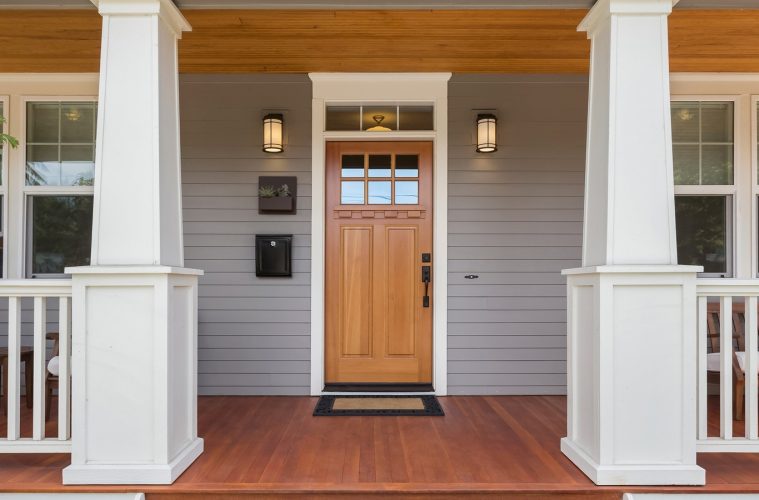French doors are a popular choice for homeowners looking to enhance the beauty and functionality of their living spaces. Known for their classic design and ability to allow natural light to flow between rooms or outdoor areas, French doors come in a variety of materials. Selecting the right material is essential to ensure durability, energy efficiency, and ease of maintenance.
Key Considerations When Choosing French Door Materials
When selecting materials for French doors, several factors should be considered to ensure they provide long-lasting performance. These include:
- Durability: Some materials can withstand harsh weather conditions better than others.
- Energy Efficiency: Insulated materials can help regulate indoor temperatures and reduce energy costs.
- Maintenance: Some materials require more upkeep to maintain their appearance and functionality.
- Aesthetic Appeal: The material should complement the architectural style of the home.
Popular Materials for Long-Lasting French Doors
Wood
Wood has been a traditional choice for Eco Elite french doors due to its natural beauty and versatility. It offers a timeless aesthetic that can be stained or painted to match any home design. However, wooden doors require regular maintenance, including sealing or painting, to protect against moisture and insect damage. High-quality hardwoods such as mahogany or oak are more resistant to warping and provide better longevity compared to softer woods.
Advantages:
- Classic and elegant appearance
- Good insulation properties
- Customizable finishes
Challenges:
- Prone to warping and rot in humid climates
- Requires ongoing maintenance
Fiberglass
Fiberglass French doors have gained popularity due to their strength and low maintenance requirements. They can mimic the look of real wood while offering superior resistance to moisture, warping, and extreme weather conditions. Fiberglass doors are also energy-efficient, providing excellent insulation that helps to maintain indoor comfort.
Advantages:
- Highly durable and weather-resistant
- Low maintenance
- Good insulation properties
Challenges:
- Higher initial cost compared to vinyl
- Limited availability of design options compared to wood
Steel
Steel French doors are known for their exceptional strength and security. They are resistant to dents and scratches and provide a modern look that fits well with contemporary and industrial-style homes. Steel doors often come with a foam core for improved energy efficiency, making them a practical option for homeowners looking for durability without compromising insulation.
Advantages:
- Excellent security and durability
- Resistant to warping and cracking
- Low maintenance
Challenges:
- Can be prone to rust if not properly maintained
- Limited design customization
Vinyl
Vinyl is a budget-friendly option for French doors, offering decent durability and resistance to moisture and pests. It is an ideal choice for homeowners seeking an affordable and low-maintenance solution. Vinyl doors are available in various colors and styles, although they may lack the refined appearance of wood or fiberglass.
Advantages:
- Affordable and lightweight
- Low maintenance
- Resistant to moisture and insects
Challenges:
- Less durable compared to other materials
- Limited color and design options
Aluminum
Aluminum French doors provide a sleek and modern look while being lightweight and corrosion-resistant. They are commonly used in contemporary homes and commercial buildings. However, aluminum is not the best insulator, and additional thermal breaks may be required to enhance energy efficiency.
Advantages:
- Strong and lightweight
- Corrosion-resistant
- Minimal maintenance required
Challenges:
- Poor insulation properties without thermal breaks
- Can dent easily under impact
Eco-Friendly Considerations for French Doors
With increasing awareness of sustainability, many homeowners are opting for environmentally friendly options when choosing French doors. French doors, for example, incorporate sustainable materials and energy-efficient glass to reduce environmental impact while maintaining durability and style. Selecting eco-friendly materials not only benefits the environment but also enhances indoor comfort and energy savings in the long run.
Choosing the Right Material Based on Climate and Usage
Different materials perform better in certain climates and conditions. For instance:
- Humid Climates: Fiberglass and vinyl are better suited due to their resistance to moisture.
- Cold Climates: Wood with proper insulation or steel doors with foam cores offer better thermal performance.
- High-Traffic Areas: Steel and fiberglass provide greater durability for frequently used entryways.
Homeowners should assess their specific needs and environmental conditions before making a final decision.
Conclusion
Choosing the best material for long-lasting French doors depends on several factors, including climate, budget, and maintenance preferences. Fiberglass and steel are durable and low-maintenance options, while wood offers a classic aesthetic with higher upkeep requirements. Vinyl and aluminum provide cost-effective and modern solutions for homeowners seeking practicality and style. Carefully evaluating these materials will ensure that French doors not only enhance the home’s visual appeal but also stand the test of time.

